 In his Addiction Professional webinar on September 13, 2017, “The Wounded Warrior: Caring for the Invisible Wounds of War,” Lieutenant Commander Bill Reynolds, PA-C, educates professionals on how mental health providers are in the optimal position to address the important mental health needs of our veterans and mitigate the potentially disastrous effects of post-traumatic stress disorder (PTSD). Reynolds, who is the associate director of Sierra Tucson’s Addiction Recovery Program, is a U.S. Navy-trained physician assistant and served on active duty for 30 years, retiring as a Lieutenant Commander in 2012. He has several years of experience in psychiatry and addiction medicine, as well as family medicine. He has a keen interest in working with trauma survivors due to his background in working with Marines and Sailors adversely affected by wartime stress. Additionally, he has an affinity for residents in Sierra Tucson’s Addiction Recovery Program, and is a strong proponent of recovery-oriented modalities to help individuals achieve sobriety. In 2017, Reynolds was awarded a specialty credential, Certificate of Added Qualifications (CAQ), from the National Commission on Certification of Physician Assistants (NCCPA). He is one of only 15 certified PAs in Arizona to earn a CAQ in Psychiatry since the NCCPA’s inception in 2011.
In his Addiction Professional webinar on September 13, 2017, “The Wounded Warrior: Caring for the Invisible Wounds of War,” Lieutenant Commander Bill Reynolds, PA-C, educates professionals on how mental health providers are in the optimal position to address the important mental health needs of our veterans and mitigate the potentially disastrous effects of post-traumatic stress disorder (PTSD). Reynolds, who is the associate director of Sierra Tucson’s Addiction Recovery Program, is a U.S. Navy-trained physician assistant and served on active duty for 30 years, retiring as a Lieutenant Commander in 2012. He has several years of experience in psychiatry and addiction medicine, as well as family medicine. He has a keen interest in working with trauma survivors due to his background in working with Marines and Sailors adversely affected by wartime stress. Additionally, he has an affinity for residents in Sierra Tucson’s Addiction Recovery Program, and is a strong proponent of recovery-oriented modalities to help individuals achieve sobriety. In 2017, Reynolds was awarded a specialty credential, Certificate of Added Qualifications (CAQ), from the National Commission on Certification of Physician Assistants (NCCPA). He is one of only 15 certified PAs in Arizona to earn a CAQ in Psychiatry since the NCCPA’s inception in 2011.
The lifetime prevalence of PTSD ranges from 5-20 percent of Iraq and Afghanistan war veterans, and it is the third most prevalent psychiatric diagnosis among veterans using the United States Department of Veterans Affairs (VA) hospitals. PTSD is a complex disorder with frequent co-morbidities of depression, substance use disorder, and traumatic brain injury, and often has a catastrophic effect for the veteran and his or her loved ones.
In the webinar, Reynolds discusses the following topics:
- Helping to identify the prevalence and significance of PTSD amongst our military veterans.
- Educating on the impact of PTSD on the veteran and their family unit.
- Identifying various integrative modalities of evidence-based treatment for PTSD.
- Discussing the health care/mental health provider’s role in screening, treatment, and referral.
CLICK HERE to watch “The Wounded Warrior: Caring for the Invisible Wounds of War.”
Veterans Day
On November 11, 2017, we will observe Veterans Day – a celebration in honor of America’s veterans for their patriotism, love of country, and selfless sacrifice they have offered for our country.
Understanding the Relationship Between PTSD and Addiction
In the video, Understanding the Relationship Between PTSD and Addiction, Bill Reynolds, PA-C, explains the link between post-traumatic stress disorder (PTSD) and substance abuse. Click here to watch.













